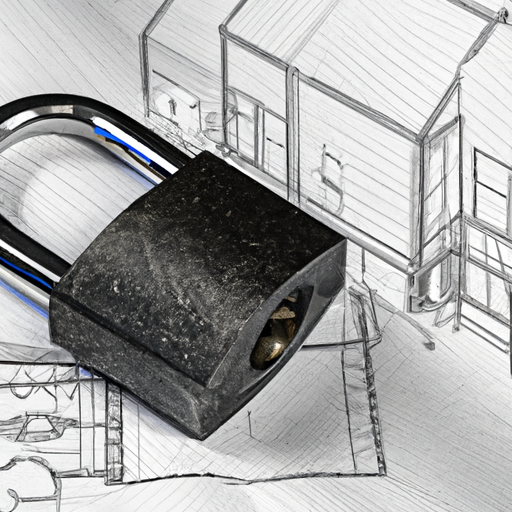When it comes to home builders, ensuring I-9 compliance is vital to maintaining a legally sound workforce. The I-9 form, issued by the United States Citizenship and Immigration Services (USCIS), verifies the employment eligibility of individuals hired for employment in the country. This article examines the importance of I-9 compliance for home builders, outlining the key responsibilities and potential penalties involved. By understanding the intricacies of I-9 compliance and actively implementing best practices, home builders can avoid legal issues and ensure a smooth operation.
Overview of I-9 Compliance
I-9 compliance is a crucial aspect of hiring and employing workers for home builders in the United States. As a home builder, it is essential to understand and follow the guidelines set by the U.S. Citizenship and Immigration Services (USCIS) to ensure that the individuals you hire are legally allowed to work in the country. This article will provide an overview of I-9 compliance, its importance, the process of completing the I-9 form, storing the forms, dealing with audits, common compliance issues for home builders, best practices, and the benefits of ensuring I-9 compliance.
Importance of I-9 Compliance
Maintaining I-9 compliance is not only a legal requirement but also essential for protecting your home building business. Failure to comply with I-9 regulations can result in severe penalties, including fines and even criminal charges. By ensuring I-9 compliance, you demonstrate your dedication to following the law and avoiding potential legal issues. Moreover, adhering to I-9 requirements helps maintain a lawful and productive workforce, contributing to a positive reputation for your business.
Understanding the I-9 Form
The I-9 form is used to verify the identity and employment authorization of individuals hired for employment in the United States. It consists of three sections that must be completed accurately and within specific timeframes. Familiarizing yourself with the I-9 form is crucial to ensuring compliance and avoiding errors that may lead to penalties or audits.
Completing the I-9 Form
Section 1: Employee Information
In Section 1, the employee must provide their personal information, including their name, address, date of birth, and Social Security number. They also need to attest to their immigration status and provide necessary documentation to prove their eligibility to work in the United States. As an employer, it is essential to ensure that Section 1 is completed accurately and within the required timeframe.
Section 2: Employer Review and Verification
In Section 2, the employer must review and verify the employee’s identity and employment authorization by examining their original documents. This review must be completed within three business days of the employee’s start date. Employers must carefully follow the instructions provided by the USCIS to ensure compliance during this verification process.
Section 3: Reverification and Rehires
Section 3 is used for reverification purposes when an employee’s work authorization has expired but they are eligible to continue working. You must properly complete this section when necessary, ensuring that you adhere to the USCIS guidelines regarding timeliness and proper documentation.
Retaining and Storing I-9 Forms
As a home builder, you are required to retain completed I-9 forms for each employee for a designated period. It is imperative to store these forms securely and maintain their confidentiality. Failure to retain and store the forms appropriately may result in penalties if an audit is conducted. Employers must also be prepared to present these forms during an audit when requested by the government authorities.
I-9 Compliance Audits
What is an I-9 Audit?
An I-9 audit is a government investigation conducted by the Department of Homeland Security (DHS) to ensure compliance with I-9 regulations. During an audit, government officials review I-9 forms and related documentation to verify the accuracy and legal compliance of an employer’s hiring practices.
Preparing for an I-9 Audit
Proper preparation is crucial to minimizing the impact of an I-9 audit on your home building business. Maintaining accurate and up-to-date I-9 forms, organizing employee documentation, and implementing regular internal audits are important steps in preparing for an audit. It is advisable to seek legal counsel to review your I-9 compliance practices and assist you in the event of an audit.
Responding to an I-9 Audit
When faced with an I-9 audit, it is essential to respond promptly and thoroughly. Cooperating with government officials, providing requested documentation, and ensuring compliance with their requests will help mitigate potential penalties. Seeking legal advice throughout the audit process can help ensure that your rights and interests as a home builder are protected.
Penalties for Non-Compliance
Non-compliance with I-9 regulations can result in significant penalties for home builders. These penalties can range from fines to criminal charges, depending on the severity of the violations. It is crucial to prioritize I-9 compliance to avoid potential legal and financial consequences.
Common I-9 Compliance Issues for Home Builders
Home builders often encounter specific compliance issues when it comes to I-9 requirements. Some common issues include incomplete or improperly filled-out forms, failure to adequately verify employee documents, and insufficient documentation retention practices. Recognizing and addressing these issues proactively can help prevent violations and ensure ongoing compliance with I-9 regulations.
Best Practices for I-9 Compliance
To maintain I-9 compliance effectively, home builders should implement the following best practices:
Designating Responsibility for I-9 Compliance
Assigning a specific individual or team to oversee I-9 compliance ensures accountability and streamlines the process. This designated person should stay informed about changing regulations and promptly address any compliance issues.
Establishing Policies and Procedures
Developing clear policies and procedures related to I-9 compliance is essential for consistency and accuracy. Implementing standardized processes for completing, reviewing, and storing I-9 forms will help minimize errors and ensure compliance across the organization.
Training and Education
Providing comprehensive training to all employees involved in the hiring process is crucial for I-9 compliance. This training should cover topics such as completing the I-9 form, proper document verification, and understanding the consequences of non-compliance.
Regular Internal Audits
Conducting regular internal audits allows home builders to identify and correct any compliance issues before an official audit takes place. These audits help ensure the accuracy and completeness of all I-9 forms and provide an opportunity to address any deficiencies promptly.
Utilizing E-Verify
Consider implementing the use of E-Verify, an online system that allows employers to verify the employment eligibility of new hires. While not a substitute for completing the I-9 form, E-Verify can enhance the accuracy and efficiency of the verification process.
Benefits of Ensuring I-9 Compliance for Home Builders
Enforcing strict I-9 compliance measures offers several benefits to home builders. These benefits include protecting the business from legal penalties, maintaining a lawful workforce, enhancing the company’s reputation, and ensuring eligibility for government contracts. By prioritizing I-9 compliance, home builders demonstrate their commitment to legal and ethical hiring practices.
FAQs about I-9 Compliance for Home Builders
What is the purpose of the I-9 form?
The purpose of the I-9 form is to verify the employment eligibility of individuals hired for work in the United States. It ensures that employers hire individuals who are authorized to work and helps prevent unauthorized employment.
Who is responsible for completing the I-9 form?
Both the employee and the employer share the responsibility for completing the I-9 form. The employee must complete Section 1, providing their personal information and attesting to their employment authorization. The employer is responsible for completing Section 2, which involves reviewing and verifying the employee’s identity and employment eligibility documents.
What happens if an employee refuses to provide required documents for the I-9 form?
If an employee refuses to provide the necessary documents for the I-9 form, the employer is obligated to terminate their employment. Failure to comply with I-9 requirements can expose the employer to legal penalties.
Can I-9 forms be completed electronically?
Yes, I-9 forms can be completed electronically, following specific guidelines provided by the USCIS. Employers must ensure that the electronic system used for completing I-9 forms complies with all legal requirements, including retaining and producing the forms as necessary.
Are home builders exempt from I-9 compliance?
No, home builders are not exempt from I-9 compliance. All employers in the United States, regardless of the industry, must comply with I-9 requirements. Failure to do so can result in severe penalties, regardless of the type of business.
In conclusion, maintaining I-9 compliance is of utmost importance for home builders to ensure legal hiring practices and protect your business. By understanding the I-9 form, completing it accurately, mitigating compliance issues, and implementing best practices, you can ensure a compliant workforce and avoid penalties. Prioritizing I-9 compliance not only demonstrates your commitment to the law but also enhances your reputation and eligibility for government contracts. If you have further questions about I-9 compliance for home builders, consult with a lawyer experienced in employment law to ensure your compliance and protect your business.









